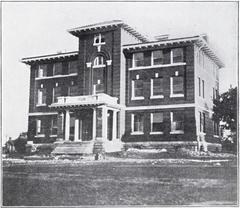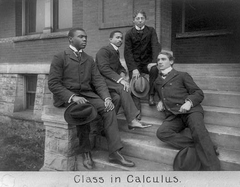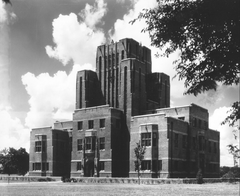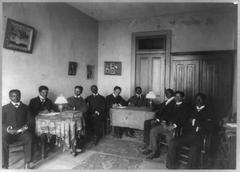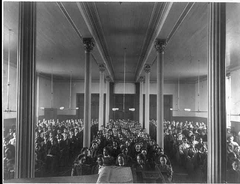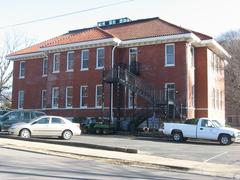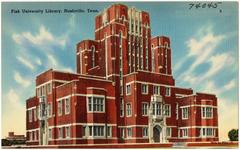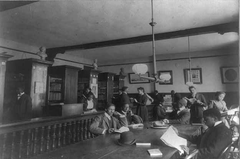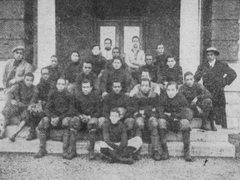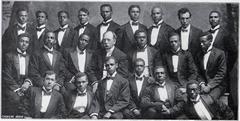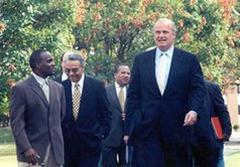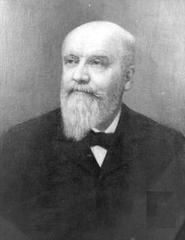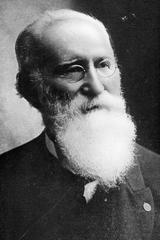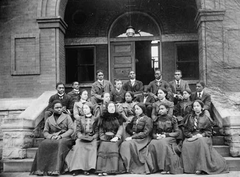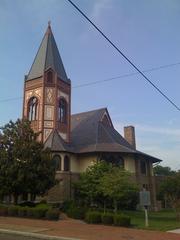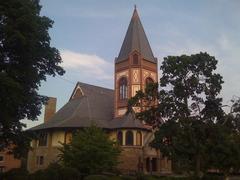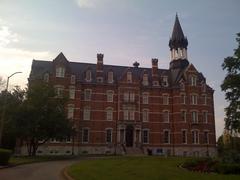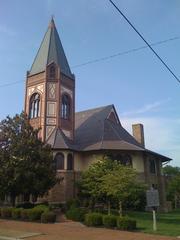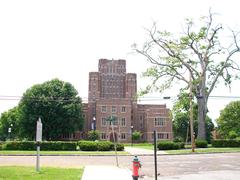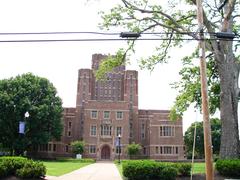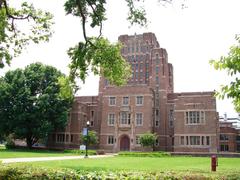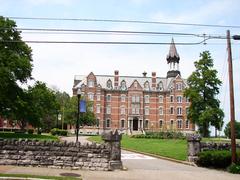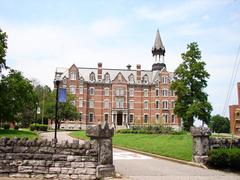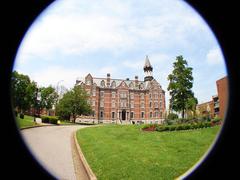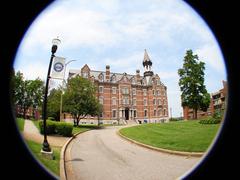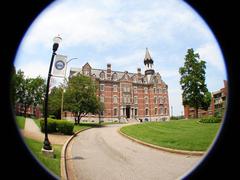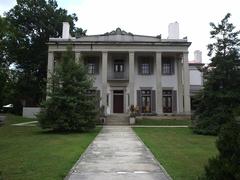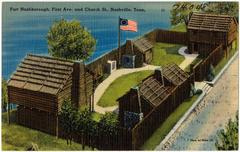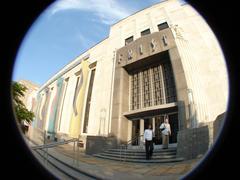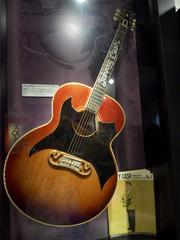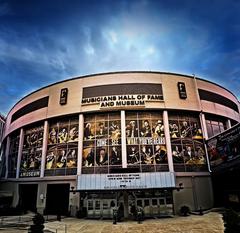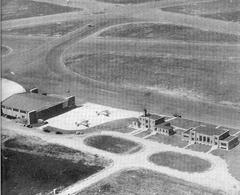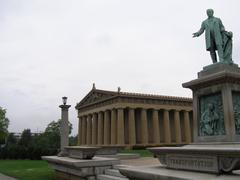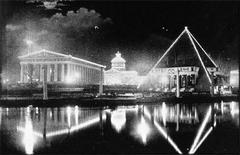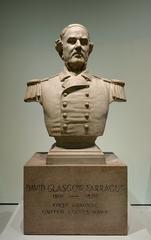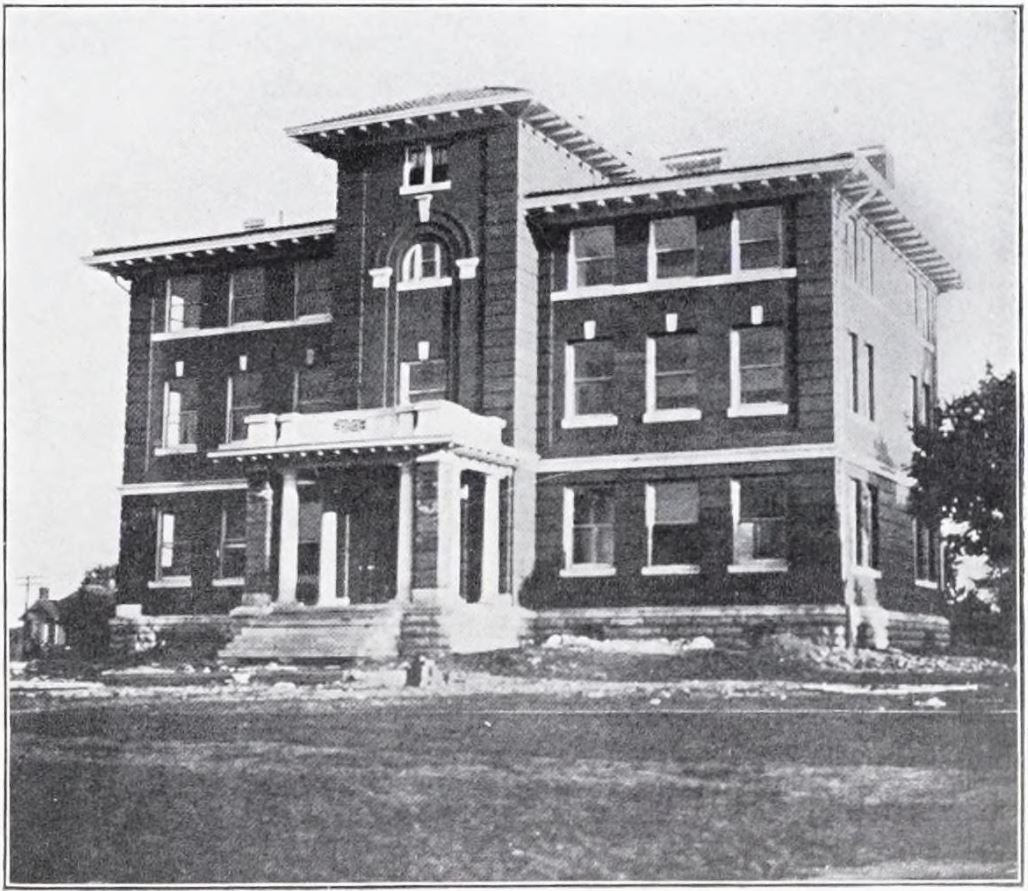
Fisk University Visiting Hours, Tickets, and Nashville Historical Sites Guide
Date: 14/06/2025
Introduction
Fisk University, located in Nashville, Tennessee, stands as a testament to African American education, culture, and civil rights history. Founded in 1865, Fisk was established to provide educational opportunities to newly freed African Americans, shaping generations of leaders and changemakers. Today, it is recognized as one of the nation’s most celebrated historically Black colleges and universities (HBCUs), attracting visitors with its rich heritage, iconic architecture, and cultural significance. Landmarks like Jubilee Hall—the oldest permanent building for African American higher education—and the globally renowned Fisk Jubilee Singers highlight Fisk’s unique role in history.
Visitors can explore a campus filled with historic landmarks, acclaimed art galleries, and modern facilities. Fisk played a pivotal role in the Civil Rights Movement and continues to be a crucial destination for those interested in America’s social justice journey. This guide provides detailed information on visiting hours, tickets, guided tours, accessibility, and tips for enhancing your visit. It also spotlights nearby Nashville historical sites, including the Ryman Auditorium and National Museum of African American Music. For the most current information, check the official Fisk University website (fisk.edu) and local cultural resources (visitmusiccity.com).
Table of Contents
- Introduction
- Historical Overview
- Visiting Fisk University
- Cultural and Artistic Significance
- Fisk University Campus Highlights
- Visitor Amenities and Accessibility
- Tips for a Memorable Visit
- Frequently Asked Questions (FAQ)
- Essential Contact Information
- Call to Action
- Sources
Historical Overview
Founding and Early Years
Established in 1865 by John Ogden, Reverend Erastus Milo Cravath, and Reverend Edward P. Smith, Fisk University began as the Fisk Free Colored School, holding its first classes in January 1866 in former Union Army barracks. General Clinton B. Fisk of the Freedmen’s Bureau provided crucial support, and the school was later renamed in his honor (jobloving.com; visitmusiccity.com; blackpast.org). Fisk welcomed a diverse student body, addressing the urgent educational needs of newly emancipated African Americans, and quickly evolved into a university with the backing of the American Missionary Association.
Growth, Accreditation, and Academic Excellence
Fisk pioneered liberal arts education for African Americans in the South. Unlike many institutions of the time, it emphasized a broad curriculum. In 1930, Fisk became the first HBCU accredited by the Southern Association of Colleges and Schools (SACS), and by 1910, it had established an advanced social work training program (civilrightstrail.com; jobloving.com).
The Fisk Jubilee Singers and Cultural Impact
Founded in 1871, the Fisk Jubilee Singers raised critical funds for the institution by touring nationally and internationally, performing African American spirituals. Their success made possible the construction of Jubilee Hall, and their global impact introduced the world to spirituals as an art form (jobloving.com).
Fisk University and the Civil Rights Movement
Fisk University has been a center of civil rights activism. Its students led pivotal actions, such as the Nashville sit-ins, and alumni like John Lewis and Diane Nash became national civil rights leaders. The Race Relations Institute, founded in 1942 by Dr. Charles S. Johnson, brought together scholars and policymakers to advance racial justice (blackpast.org; pedagogue.app).
Notable Alumni
- Ida B. Wells-Barnett: Journalist and early civil rights leader
- John Lewis: U.S. Representative and civil rights icon
- Thurgood Marshall: First African American U.S. Supreme Court Justice
- W.E.B. Du Bois: Influential scholar and activist (civilrightstrail.com; jobloving.com)
Visiting Fisk University
Visiting Hours
- General Campus Access: Monday–Friday, 8:00 AM–6:00 PM; Saturday, 9:00 AM–4:00 PM (closed Sundays and major holidays)
- Art Galleries: Monday–Saturday, 10:00 AM–4:00 PM (closed Sundays and federal holidays)
- Guided Tours: Available Tuesday–Saturday, 10:00 AM–3:00 PM by appointment (Fisk University Campus Visit)
Check fisk.edu for holiday schedules and special event hours.
Tickets and Tours
- Self-Guided Tours: Free; maps available at the Office of Admissions and online
- Guided Tours: Appointment required; group tours for 50+ require advance booking
- Special Events: Some may require tickets, available online or at the Office of Admissions (tnexpresstours.com)
Accessibility
- Wheelchair-accessible paths and parking
- ADA-compliant facilities
- Contact the admissions office for specific accommodations
Special Events and Photographic Spots
- Annual events: Jubilee Day, the Fisk Food & Jazz Music Festival, and art gallery exhibitions
- Photographic spots: Jubilee Hall, Carl Van Vechten Gallery, campus quadrangle, and historic murals
Travel Tips and Nearby Attractions
- Nearby sites: National Museum of African American Music, Ryman Auditorium, Country Music Hall of Fame, and Centennial Park
- Transportation: Accessible by public transit, ride-share, and on-campus parking is available
- Local dining: Midtown and 12South neighborhoods offer diverse options
Cultural and Artistic Significance
Harlem Renaissance Connection
Fisk’s cultural impact is closely tied to the Harlem Renaissance. Aaron Douglas founded the art department in 1930, and his murals remain a highlight for visitors (Fisk University Galleries; Forbes). Arna Bontemps furthered Fisk’s reputation as a literary and artistic center.
Fisk University Galleries
Carl Van Vechten Art Gallery
Home to over 100 masterpieces, including works by Picasso and O’Keeffe, the gallery features the Alfred Stieglitz Collection and is open Monday–Saturday, 10 am–4 pm (Fisk University Galleries).
Aaron Douglas Gallery
Located in the John Hope and Aurelia Elizabeth Franklin Library, the gallery displays works from the Harlem Renaissance and beyond. Aaron Douglas’s murals in Cravath Hall are accessible Monday–Friday, 9 am–5 pm.
Permanent Collection and Special Holdings
Fisk’s art collection exceeds 4,000 pieces, featuring works by renowned artists and rare historical documents, including first editions by Phillis Wheatley and Benjamin Banneker (The Nashville Black Market).
Pioneering Artists and Faculty
David C. Driskell, Robert Hall, and Stephanie Pogue have all contributed to the development of Fisk’s art programs and collections (Fisk University Galleries; Frist Art Museum).
Exhibitions and Collaborations
- Origins of Influence IV: The Alfred Stieglitz Collection (through Feb 2026)
- Kindred Spirits: Intergenerational Forms of Expression, 1966–1999 (in partnership with Frist Art Museum)
- David C. Driskell and Friends: Creativity, Collaboration, and Friendship (Frist Art Museum)
Fisk Jubilee Singers and Musical Heritage
Since 1871, the Fisk Jubilee Singers have preserved African American spirituals and remain a major part of Nashville’s music scene (NMAAM; Soundstripe).
Practical Visitor Information
- Location: 1000 17th Ave N, Nashville, TN 37208
- Admission: Free to galleries and exhibitions
- Tours: By appointment; family-friendly events available (Fisk University Galleries)
- Contact: (615) 329-8720, [email protected]
- Accessibility: Wheelchair accessible; accommodations available
Visual and Media Highlights
High-quality images, interactive maps, and virtual tours are available on the Fisk University Galleries website.
Fisk University Campus Highlights
Historic Architecture
- Jubilee Hall: Oldest permanent African American higher education building in the U.S., Victorian Gothic, National Historic Landmark (Fisk University Campus History Tour)
- Fisk Memorial Chapel: Romanesque Revival, known for its acoustics and stained glass
- Cravath Hall: Features Aaron Douglas murals, central to campus academic life
- The Little Theater: Former Union Army hospital, now a historic classroom/theater
- Boyd House: Early 20th-century residence, awaiting renovation
Modern Facilities and Innovative Spaces
- Allied Science Building: State-of-the-art STEM facility with collaborative learning spaces
- Roland Parrish Career Center: Career counseling, internships, networking
- New Student Residences: Modern, sustainable housing
Art and Cultural Landmarks
- Carl Van Vechten Gallery and Aaron Douglas Gallery: Permanent and rotating art collections
- Jubilee Singers Monument and Museum: Honors the musical legacy of the Jubilee Singers
Outdoor Spaces and Notable Memorials
- Campus Quadrangle: Site of events like Jubilee Day
- Clinton B. Fisk Statue: Honors the university’s namesake
- Historical Markers: Interpretive signage throughout campus
Visitor Amenities and Accessibility
- Coffee shops and lounges in the Allied Science Building
- Wheelchair-accessible paths and parking
- Restrooms and water fountains in main buildings
- Visitor parking at 1812 Morena Street
Tips for a Memorable Visit
- Book tours in advance for groups or special interests
- Check gallery/event hours before visiting
- Attend a Jubilee Singers performance or campus festival
- Combine your visit with downtown Nashville attractions
- Respect campus etiquette and avoid disrupting classes
- Dress for the weather—Nashville summers are hot; winters are mild (Travel Lemming: Nashville Tips)
Frequently Asked Questions (FAQ)
Q: What are Fisk University’s visiting hours?
A: Monday–Friday, 8:00 AM–6:00 PM; Saturday, 9:00 AM–4:00 PM. Galleries: Monday–Saturday, 10:00 AM–4:00 PM.
Q: Are there fees for tours?
A: Self-guided tours are free. Some guided tours or events may require tickets.
Q: Are guided tours available?
A: Yes, by appointment through the Office of Admissions. Groups of 50+ require advance booking.
Q: Is the campus wheelchair accessible?
A: Yes; contact the university for any additional accommodations.
Q: Is parking available?
A: Yes, at 1812 Morena Street and designated visitor areas.
Q: Can I take photos on campus?
A: Yes, but please be respectful of classes.
Essential Contact Information
- Address: 1000 17th Ave N, Nashville, TN 37208
- Visitor Information: Fisk University Campus Visit
- Phone: (615) 329-8666
- Email: [email protected]
Call to Action
Ready to explore Fisk University and Nashville’s rich history? Download the Audiala app for guided audio tours and exclusive visitor content. Follow Fisk University’s official social media for news, events, and updates. For more, explore related articles on Nashville historical sites and plan your perfect trip.
Summary
Fisk University is a beacon of African American academic excellence, cultural preservation, and social justice heritage. Its historic campus, marked by landmarks like Jubilee Hall and Cravath Hall, invites visitors to explore pivotal chapters of American history. With free admission, accessible facilities, and a variety of tours and events, Fisk is an essential stop for anyone seeking to understand African American achievement and the broader story of Nashville. For the latest updates, visit fisk.edu and consider using mobile apps like Audiala for enhanced tours. Stay connected via social media and deepen your appreciation for this extraordinary institution (blackpast.org; civilrightstrail.com).
Sources
- The Founding of Fisk University: A Historical Retelling (jobloving.com)
- Fisk University Historical Overview (blackpast.org)
- Fisk University’s Role in the Civil Rights Movement (pedagogue.app)
- Fisk University Galleries (fisk.edu)
- Fisk University and the Harlem Renaissance (forbes.com)
- Fisk University Group Tours (tnexpresstours.com)
- Fisk University Campus History Tour (theclio.com)
- Fisk University About and Events (fisk.edu)
- A Black Woman’s Guide to Visiting Nashville (essence.com)
- Civil Rights Trail: Fisk University (civilrightstrail.com)
- The Nashville Black Market
- Soundstripe: Nashville Black Music History
- Travel Lemming: Nashville Tips
- Frist Art Museum: 2025 Schedule
